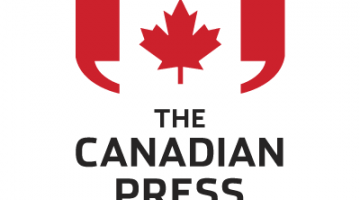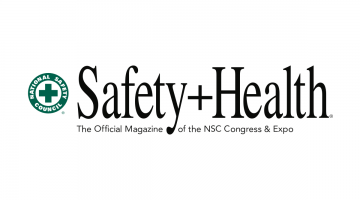COVID-19
COVID-19 was declared a global pandemic by the World Health Organization on March 11, 2020. In short order, the world of work changed dramatically in Canada. Non-essential businesses were locked down. Some workers lost their jobs; others were sent home to work. Essential businesses kept going. Despite protections, workers in sectors ranging from health care to transportation to food production and retail faced risk of infection, illness and even death. IWH researchers are looking at the impact of the pandemic on workers and workplaces, and what it means going forward.
Featured

At Work article
What can work-related COVID-19 cases tell us about how to prepare for the next pandemic?
A new study by IWH combined data sources to estimate work-related COVID-19 infection rates, using a method that took into account major shifts in where people worked.
Published: February 6, 2024

At Work article
Study of educators during pandemic found psychosocial conditions worse for those teaching online
In the fall of 2020, Ontario educators who taught in a virtual environment felt isolated and unsupported, while those working in-person experienced anxiety related to the risk of COVID transmission. That’s according a study of Ontario teachers, conducted by OHCOW and IWH.
Published: October 5, 2022

IWH in the media
Quebec and Ontario labour activists urge for more transparency around COVID-19 outbreaks in workplaces
Labour activists in Quebec and Ontario say more transparency is needed around COVID-19 outbreaks in warehouses and factories, writes the Canadian Press's Jacob Serebrin, with comments from IWH President Dr. Cameron Mustard.
Published: The Canadian Press, December 2020
News release
News release
Workers who feel protected from COVID at work have better mental health, research suggests
Published: December 2020

IWH in the media
Unsafe workplaces during COVID-19 taking huge toll on workers’ mental health
Poor workplace COVID-19 precautions exacted a greater toll on workers’ mental health than losing a job during the pandemic, a new study has found. The Toronto Star's Sara Mojtehedzadeh speaks to co-leads of the study, Institute for Work & Health's Dr. Peter Smith and Occupational Health Clinics for Ontario Workers's John Oudyk.
Published: Toronto Star, December 2020

IWH in the media
Study links inadequate PPE, COVID-19 infection controls to worker mental health issues
Feelings of anxiety and depression were highest among workers whose perceived personal protective equipment and infection control needs were not met during the early months of the COVID-19 pandemic, Safety + Health reports on a study by the Institute for Work & Health and Occupational Health Clinics for Ontario Workers.
Published: Safety + Health, December 2020

IWH in the media
Workplaces are the new hotspot for COVID-19 outbreaks in Ontario
Whether it’s factories, food processing plants or construction sites, the latest numbers show heavily populated, essential workplaces are hotspots for COVID-19 in Ontario, Mark Carcasole reports, with quotes from Institute for Work & Health's Dr. Cameron Mustard.
Published: Global News, December 2020

At Work article
Rapid COVID-19 testing a potential game-changer in worker protection
Despite some limitations, rapid antigen detection tests may be important in the next phase of our response to this virus—including in work settings, writes IWH president Dr. Cam Mustard.
Published: November 2020

At Work article
COVID-19: Challenges and opportunities in OHS and social security highlighted at global session
In early October, the global community of OHS and social security policy-makers gathered virtually to discuss challenges and lessons learned as countries respond to the COVID-19 pandemic emergency. Despite the diversity of their experiences, many common themes emerged.
Published: November 2020
IWH Speaker Series
IWH Speaker Series
More than just COVID-19 prevention: Exploring the links between PPE, safe work protocols and workers' mental health
We have heard a lot about the importance of personal protective equipment (PPE) and infection control procedures (ICP) in reducing workplace COVID-19 transmission. A new study, conducted jointly with the Occupational Health Clinics for Ontario Workers (OHCOW), set out to explore their importance in protecting workers' mental health. In this presentation, Dr. Peter Smith shares results from two surveys, one conducted among health-care workers and the other among the broader Canadian workforce. The findings provide important insights into the additional benefits of adequate design and implementation of employer-based infection control practices—beyond reducing COVID-19 transmission.
Published: November 2020

At Work article
Adequacy of COVID infection control and PPE linked to workers’ mental health: study
Workers who felt safe at their physical work sites had better mental health than workers who felt workplace COVID-19 safety practices were inadequate, according to a study conducted by IWH and OHCOW at the start of the COVID-19 emergency.
Published: November 2020

At Work article
What research can do: Estimating the role of workplaces in COVID-19 transmissions
By using two sources of information in Ontario, we can estimate the incidence of COVID-19 infections that arose from workplace transmission during the first six months of the pandemic.
Published: August 2020